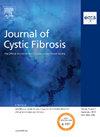Adapting the cystic fibrosis care model: Perspectives from people with CF, caregivers, and members of CF care teams
IF 5.4
2区 医学
Q1 RESPIRATORY SYSTEM
引用次数: 0
Abstract
Background
Rapidly emerging clinical trends offer the opportunity to amend guidance on issues pertaining to CF care delivery. A national survey was conducted to gather perspectives on CF care including potential adaptations to the care model to best meet the needs of this population.
Methods
A survey instrument was developed to capture perspectives on CF care. People with CF (pwCF), including those post lung transplant, caregivers and care teams were surveyed. Descriptive statistics were calculated to characterize respondents and responses.
Results
In-person, routine visits with the CF care teams were valued by survey respondents. However, reduced in-person visit frequency from the standard three-month interval was supported for individuals in a stable state of health. This was particularly true for pwCF ages two or older and on a modulator. Lung function, pulmonary exacerbation frequency, and transition periods were noted to influence preference for visit frequency. Integrating telehealth with remote monitoring in between visits was broadly supported. For shared care between CF teams and other medical providers (transplant teams and primary care providers (PCP)), good communication, easily accessible health records, and convenient locations were important.
Conclusions
Survey findings support adapting CF care based on individual needs and life transitions. Themes identified can inform future areas of study and resource development to support successful modification of the CF care model and shared decision-making between patients and their care providers.
调整囊性纤维化护理模式:囊性纤维化患者、护理人员和囊性纤维化护理团队成员的观点。
背景:迅速兴起的临床趋势为修订有关 CF 护理服务问题的指南提供了机会。我们开展了一项全国性调查,以收集有关 CF 护理的观点,包括对护理模式的潜在调整,从而最大限度地满足这一人群的需求:方法:我们开发了一种调查工具来收集有关 CF 护理的观点。对 CF 患者(包括肺移植后患者)、护理人员和护理团队进行了调查。我们计算了描述性统计数字,以描述受访者和回答的特点:受访者非常重视与 CF 护理团队的面对面例行探访。然而,对于健康状况稳定的人来说,他们支持在标准的三个月间隔期基础上减少亲自探访的频率。对于年龄在两岁或两岁以上且正在使用调节剂的儿童患者来说,尤其如此。研究指出,肺功能、肺部恶化频率和过渡时期会影响对就诊频率的偏好。在两次就诊之间将远程医疗与远程监测相结合的做法得到了广泛支持。对于 CF 团队与其他医疗服务提供者(移植团队和初级保健提供者 (PCP))之间的共同护理而言,良好的沟通、易于获取的健康记录和方便的地点非常重要:调查结果支持根据个人需求和生活转变调整 CF 护理。所确定的主题可为未来的研究领域和资源开发提供信息,以支持成功修改 CF 护理模式以及患者与其护理提供者之间的共同决策。
本文章由计算机程序翻译,如有差异,请以英文原文为准。
求助全文
约1分钟内获得全文
求助全文
来源期刊

Journal of Cystic Fibrosis
医学-呼吸系统
CiteScore
10.10
自引率
13.50%
发文量
1361
审稿时长
50 days
期刊介绍:
The Journal of Cystic Fibrosis is the official journal of the European Cystic Fibrosis Society. The journal is devoted to promoting the research and treatment of cystic fibrosis. To this end the journal publishes original scientific articles, editorials, case reports, short communications and other information relevant to cystic fibrosis. The journal also publishes news and articles concerning the activities and policies of the ECFS as well as those of other societies related the ECFS.
 求助内容:
求助内容: 应助结果提醒方式:
应助结果提醒方式:


